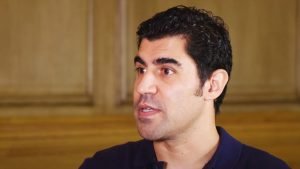Speaker Spotlight: Parag Khanna
Don’t Take Globalization for Granted
Parag Khanna sat down with us to explain why globalization has been an overall net positive – even for the developing world.
In this one-on-one chat with Doha Debates correspondent Nelufar Hedayat, strategist and author Parag Khanna aims to correct some general misconceptions on globalization. “It should be defined as the movement of goods, people, services, data, ideas, technologies from place to place. It doesn’t have to be across an international boundary,” he says. Taking a historical look at migration and movement over many millennia, rather than the “blip” of heightened tension in current politics, Parag argues, shows you a different perspective: Movement is innately human. “We have been building infrastructure, roads or pipelines or railways or airports for centuries. This is something that is who we are.”
Participant in this video:
This video is part of the full debate:
Globalization



